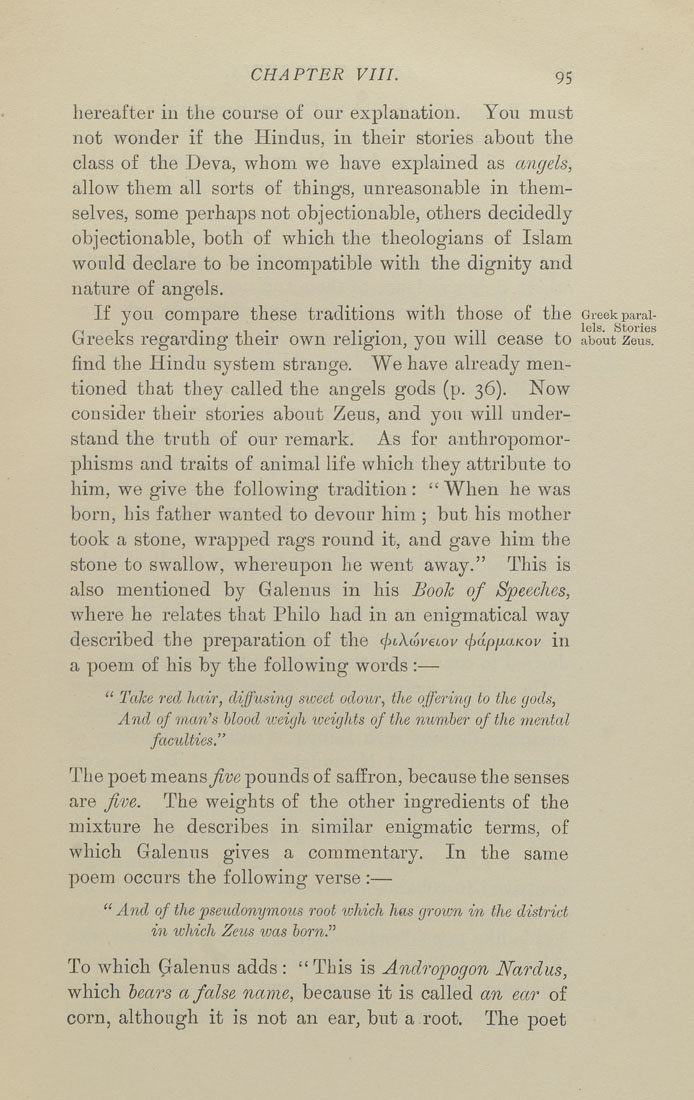Bīrūnī, Muḥammad ibn Aḥmad, Alberuni's India (v. 1)
(London : Kegan Paul, Trench, Trübner & Co., 1910.)
|
||
|
|
|
|
| Page 95 |

CHAPTER VIII. 95 hereafter in the course of our explanation. You must not wonder if the Hindus, in their stories about the class of the Deva, whom we have explained as angels, allow them all sorts of things, unreasonable in them¬ selves, some perhaps not objectionable, others decidedly objectionable, both of which the theologians of Islam would declare to be incompatible with the dignity and nature of angels. If you compare these traditions with those of the Greek parai- G reeks regarding their own religion, you will cease to aboiat zeus. find the Hindu system strange. We have already men¬ tioned that they called the angels gods (p. 36). Now consider their stories about Zeus, and you will under¬ stand the truth of our remark. As for anthropomor¬ phisms and traits of animal life which they attribute to him, we give the following tradition: "When he was born, his father wanted to devour him ; but his mother took a stone, wrapped rags round it, and gave him the stone to swallow, whereupon he went away." Pliis is also mentioned by Galenus in his Book of Speeches, where he relates that Philo had in an enigmatical way described the preparation of the (jiLXwveLov cjidpiiaKov in a poem of his by the following words :—■ " TaJce red hair, diffusing sweet odour, the offering to the gods. And of man's blood weigh iveights of the number of the mental faculties." The poet mesins five pounds of saffron, because the senses are five. The weights of the other ingredients of the mixture he describes in similar enigmatic terms, of which Galenus gives a commentary. In the same poem occurs the following verse :— " A7id of the pseudonymous root vjhich has groion in the district in which Zeus was born." To which Galenus adds : " This is Andropogon Nardus, which hears a false name, because it is called an ear of corn, although it is not an ear, but a root. The poet |
| Page 95 |







